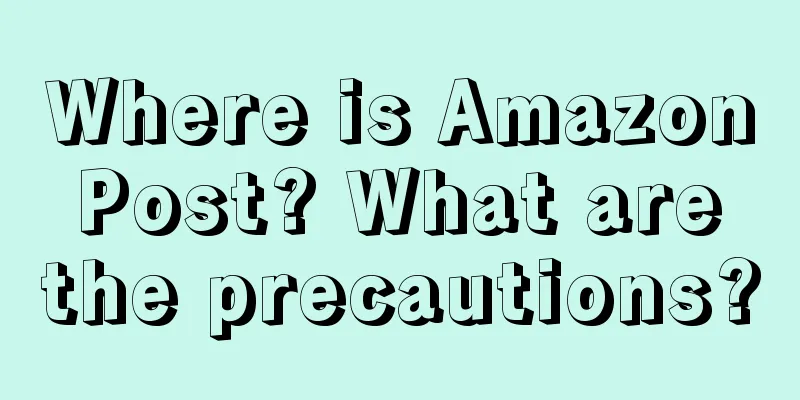The ultimate debate: Which is more important, product or marketing?

In the process of business operation, products and marketing are two key factors for the success of an enterprise. So which is more important, products or marketing? Regarding this question, there has been no standard answer in the marketing and business circles. Although different opinions are held, they all seem to make sense. Some people think that marketing is more important. China has entered an era where good products are everywhere and homogeneity is serious. Without efficient marketing methods, even the best products cannot be known and experienced by consumers. And in the context of the rapidly changing market environment, it is necessary to quickly seize the market and establish a brand through marketing in order to defeat competitors. Therefore, this group of people believe that whoever does a better job of marketing and has a lower cost in acquiring traffic and customers will be able to stand out in the fiercely competitive red ocean market. However, more people believe that products are more important because products are the foundation of an enterprise and determine its life cycle. Only good products can truly meet consumer needs, provide high-quality experience, and ultimately establish consumer loyalty, enhance the company's reputation, and allow the company to enter a virtuous cycle of operations. Therefore, those who support this view firmly believe that a company with "first-rate products and third-rate marketing" is far stronger than a company with "third-rate products and first-rate marketing", and that good products are the core competitiveness of a company. In Lao Pao's opinion, discussing which is more important, marketing or product, is a false proposition! In general, marketing refers to publicity, sales, and operations. In layman's terms, it means creating opportunities and scenarios for consumers to know, buy, or even actively recommend a company's products or services. People usually understand the role of marketing as fully displaying the company's existing product selling points and service advantages to consumers, attracting their attention and converting them. However, in the actual business operations of an enterprise, products and marketing are two inseparable core elements; we can understand it as product marketing, that is, marketing has begun when the product is developed and designed, which is the necessary awareness for any enterprise to succeed. In his best-selling book Marketing Management, Philip Collett, the "Father of Marketing", established a marketing mix method with 4Ps as the core: Product Strategy : Products must have unique selling points and proactively develop functions, putting functional demands first; Price Strategy : Formulate different pricing strategies based on different market positioning and market supply and demand; Place Strategy : Select appropriate channels, distributors, sales networks, etc., to allow consumers to purchase products more conveniently. The last one is Promotion Strategy , which is the narrow understanding of marketing by most people mentioned earlier, including a series of marketing behaviors such as brand promotion, advertising, public relations, promotion, and operation, which help companies enhance brand influence, strengthen awareness, and achieve conversion and transaction more effectively. Philip Kotler’s explanation of marketing is enough to show that “which is more important, product or marketing” is indeed a false proposition, because the product itself is part of marketing. This reminds me of the time when I was invited to serve as the final judge for a major marketing award a while ago. Among the three candidate cases nominated for the grand prize, two were advertising videos with great creativity, and the other was the Luckin Coffee Sauce-flavored Latte that went viral on WeChat Moments this year. In my personal opinion, the case of the sauce-flavored latte was undoubtedly a crushing victory. In this project, Luckin Coffee achieved the ultimate in the four aspects of marketing, namely product, price, channel, and publicity, which ultimately led to the effect of nationwide buying and screen-sweeping sharing. However, many people think that Luckin Coffee is just a joint venture, and compared with the other two cases, Luckin is not outstanding in advertising creativity and insight. This is a typical one-sided understanding of marketing as advertising creativity (it is not even Promotion in 4Ps). When analyzing marketing cases, it is necessary to judge from the overall picture of marketing to avoid falling into the trap of seeing nails when holding a hammer. After correctly understanding the concept of marketing, we return to the topic to be discussed in this article: "For business operations, which is more important in marketing, "product" or "promotion?" This requires first understanding the roles of products and promotion, as well as the relationship between products and promotion. 1. Product is 1, publicity is 0In order to better understand the relationship and difference between products and marketing, let me first quote a few points from Mr. Xiaoma Song:
It can be seen that products and publicity are actually a mutually dependent and mutually integrated relationship. Without good products as a premise, even the most outstanding marketing will be in vain. For example, in recent years it has become popular for celebrities to open hot pot restaurants. Since celebrities themselves have exposure and traffic, these celebrity hot pot restaurants are often extremely popular when they first open. However, after a while, they are usually deserted because they do not devote themselves to researching the products, resulting in few repeat customers and poor reputation. Lao Pao has also witnessed with his own eyes situations where excessive marketing efforts have backfired on a company, resulting in huge losses. A few years ago, a large Internet company launched a sales model of two-wheeled electric vehicles + battery swap cabinets. It usually takes more than 10 hours to fully charge a two-wheeled electric vehicle, so direct battery swapping is an absolute necessity for two-wheeled electric vehicle users. At that time, it chose to conduct a landing experiment of the business model in a third-tier city. In order to quickly promote the battery swap model throughout the city, a lot of online and offline publicity was done, and eventually the battery swapping of two-wheeled electric vehicles became a household name in the local area. However, the turning point came a few months later, as various problems with the quality of electric vehicles and battery swap cabinets often occurred and were not resolved, which led to serious dissatisfaction among dealers and consumers, resulting in the company's poor reputation in the local area. Ultimately, this seemingly promising project ended in failure. If it had chosen to conduct market exploration and model testing on a small scale first, and then vigorously promote it after the problems of product quality and battery swap cabinets were fully resolved, the outcome might have been different. 2. Publicity is the fermentation agent of good productsNowadays, competition in all walks of life is fierce, the market is extremely saturated, and product homogeneity is also very serious; the variety of similar products makes consumers have many choices, and they will not actively search for a company's products. There is no doubt that we have entered an era where good wine needs to be hidden in a remote alley, and it is difficult to ensure business development and profitability by just making good products. Fenghua, a nearly 40-year-old domestic brand, has invested all its money in research and development in recent years. When toiletries are becoming more and more expensive, Fenghua has always maintained its original intention to make high-quality and low-priced products, but two years ago it was rumored to be bankrupt. Therefore, Fenghua learned from its mistakes and continued to use marketing events such as low-key donations, adoption of pandas in the United States, and 79-yuan cleaning and care packages to successfully open up new traffic outlets on social media and achieve a double increase in product sales and the number of fans. In addition, in the early stages of business development or product launch, publicity is a way to help companies quickly attract consumers, expand market share, and ultimately gain an advantage in the competition. This is also why in previous years, Internet companies, in the early stages of the development of businesses such as taxi-hailing platforms, food delivery platforms, shared bicycles, short video live streaming, and grocery shopping platforms, would spend money on publicity and subsidies regardless of cost, because publicity is the most effective way to quickly capture the market in a short period of time. 3. Good products can save advertising costsAlthough even the best products cannot do without the help of publicity, good products can rely on product marketing and word of mouth from old customers to greatly save the company's marketing costs and achieve twice the result with half the effort. An excellent product can be recommended by people and actively promoted. In the decision-making process of consumers, they are more willing to believe in the recommendations of friends and family than being influenced by advertisements. In the long run, this kind of word-of-mouth promotion is not only more effective but also less costly, and plays a vital role in the long-term development of the company. Pang Donglai, a new internet-famous supermarket, is well-known for its ultimate customer service and employee care. In fact, in terms of product quality control, Pang Donglai has also achieved a level that other supermarkets can't even dream of. First of all, in terms of product categories, Pang Donglai sells many brands and products that are not available in third- and fourth-tier cities, such as Thermos, Tiger thermos, and uncommon products such as goose eggs and pigeon eggs. Even Xi'an residents' favorite Bingfeng soda and the three northeastern provinces' favorite Qiulin kvass are also available. Secondly, in terms of self-developed products, Pang Donglai insists on regarding materials and craftsmanship as the core of product research and development, and is dedicated to improving product quality, rather than blindly following trends or making products based on efficiency. Its independently developed big mooncakes, red velvet cakes, ice bread, and wine are all sought after by consumers for their excellent quality, triggering a frenzy of buying; these products have become Pang Donglai's new business card, attracting many consumers to Pang Donglai to check in, live broadcast, and buy. Then there are the product descriptions. Detailed instructions and tips are posted for sensitive issues such as product usage, safety, and health. For example, a newly bought bowl cannot be used directly, but must be boiled and sterilized first. When a bucket of cooking oil is almost finished, many people will use it with a new one. This is OK in winter but not in summer because the high temperature will cause it to spoil. There are three issues that need to be paid attention to when feeding jelly to children, and how to distinguish jelly mixed with flavors and pigments... Finally, when it comes to merchandise display, we also consider the customer’s perspective, so that customers can buy with confidence without worrying about quality issues. For example, when displaying vegetables, Pang Donglai takes customers' concerns into consideration by trimming dead leaves and placing them neatly. Even if the price is a bit relatively high, customers are still willing to buy them. As for the grapefruit in the fruit area, the grapefruit skin will be peeled in advance to display the firm and plump flesh. This kind of display is obviously the result of careful research. It is precisely because Pang Donglai has spent a lot of time and energy on its products, carefully studying and polishing every detail of the products, that it has finally gained self-propagation from a large number of customers and accumulated an excellent reputation, which cannot be achieved no matter how much publicity budget is spent. In addition, product marketing is also a very effective means of saving publicity budget by utilizing products. In layman's terms, it is to embed marketing information into the product. For example, the bottle of Jiang Xiaobai, which has become popular in the streets and alleys with its highly resonant and touching scene copywriting, is a successful product marketing case. Product marketing scenes are also common in Internet products. For example, food delivery platforms use red envelopes to induce users to share and spread the word after ordering food, and guide users to show off in their circle of friends after winning certain honors or achievements in the game. These are all ways to integrate products and publicity to achieve product marketing. Perhaps the debate about "which is more important, product or publicity" will always exist, and it is impossible to discuss a universally recognized standard answer, but the following business logic is absolutely effective: Focus on developing competitive products, use marketing and publicity to increase influence and acquire accurate users, use excellent product power to build a good reputation and form loyalty, and ultimately establish a business growth flywheel through the mutual synergy of high-quality products and marketing and publicity! Author: Lao Pao; WeChat public account: Lao Pao OG |
Recommend
I conducted a small-scale survey of former employees of large Internet companies.
Through the author's own workplace communicati...
How to watch Shopee live broadcast? How to activate Shopee live broadcast?
Many people buy overseas imported goods on the Sho...
Will Amazon shut down my account if I limit my traffic? How long will the limit last?
Before doing business on Amazon, you must first be...
For businesses with a large number of physical stores, Video Account may be your last chance to transform online
For businesses with many physical stores, digital ...
Sa Dingding, the human CD player, started broadcasting on Douyin, and professional singers "re-debuted" in the live broadcast room
Sa Dingding made her live broadcast debut on Douyi...
How to apply for a flash sale on Amazon's new products? What's the method?
On the Amazon platform, many Amazon listings will ...
What is management? I rethought this question after starting my own business.
This article explores the relationship between man...
Is Shopee's brand inspection strict? What should I do if Shopee's brand audit fails?
If you want to do cross-border e-commerce, you mus...
Xiaohongshu focuses on traffic | Core element control and data-driven optimization strategy
This article introduces the practical experience a...
How to achieve 100% store conversion rate?
At present, no store link can achieve a 100% conve...
I finally made it clear what the underlying logic of data-driven growth is
Introduction: Growth effects always make people fe...
What are the traffic entrances to Amazon? Is there a lot of off-site traffic?
In addition to the well-known e-commerce platforms...
Breaking through the growth bottleneck: the wisdom of cooperation between CEO and CMO
How can CEOs and CMOs break through growth bottlen...
Is it better to do cross-border e-commerce import or export? How to choose a cross-border e-commerce platform?
With the increasing integration of the global mark...
What abilities does a foreign trade merchandiser need? Is English a high requirement?
The work of a foreign trade merchandiser is actual...






![This time, the user segmentation model was finally evaluated as [useful]](/upload/images/67e7776e50f2a.webp)


